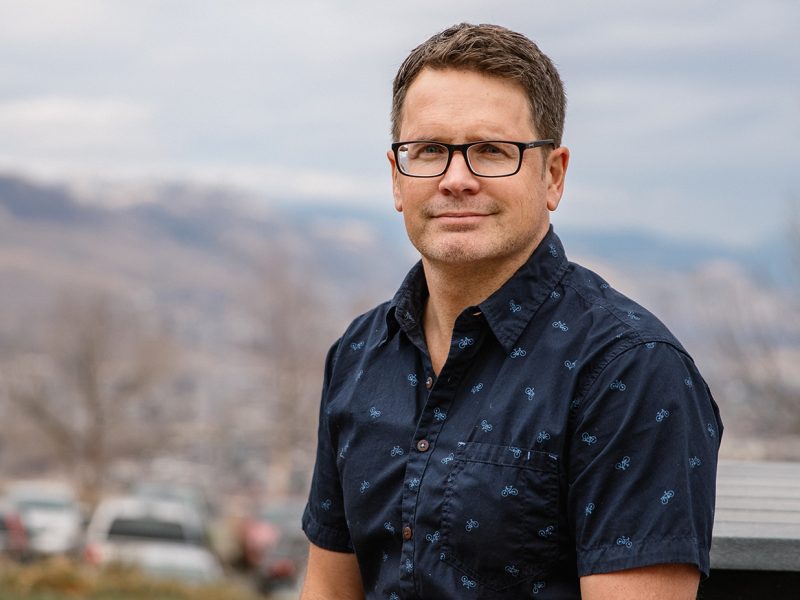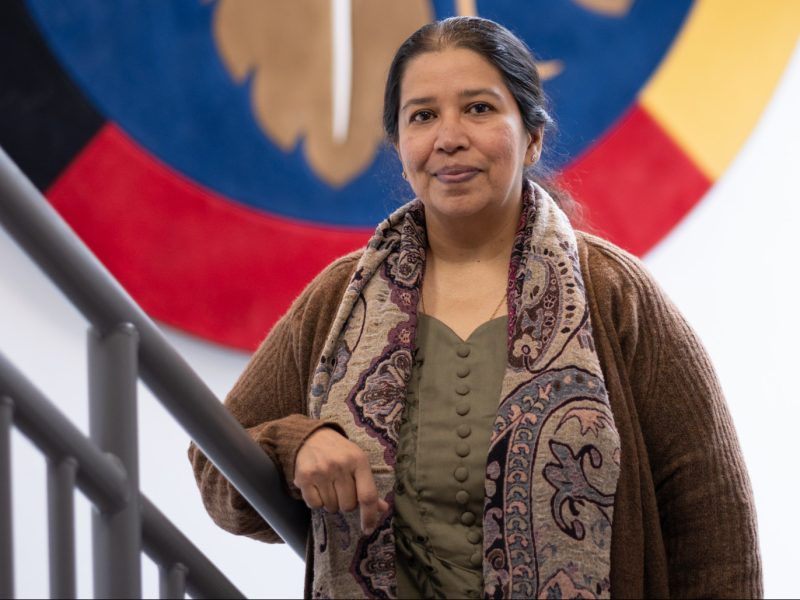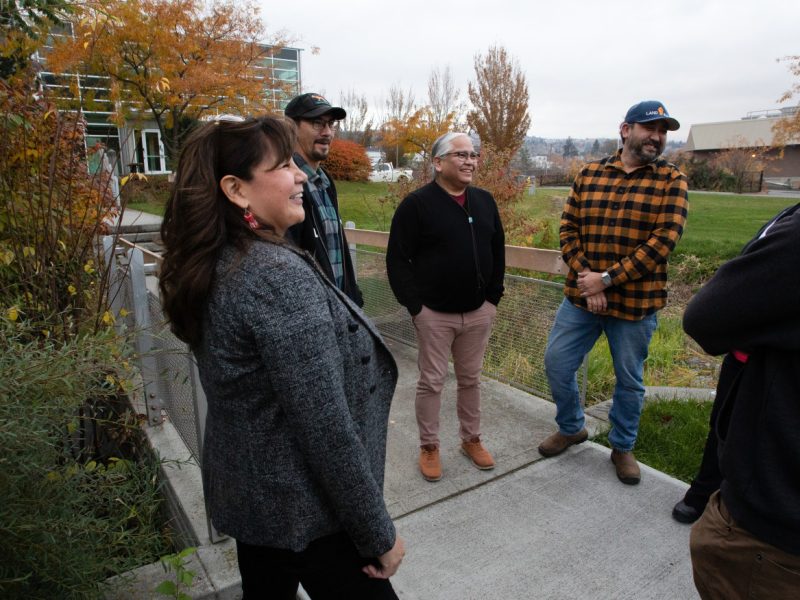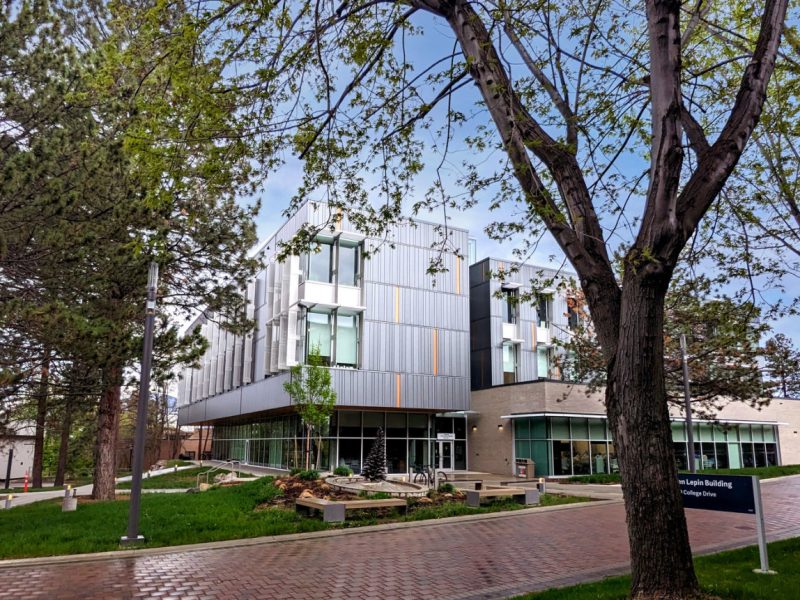SDG 17: Partnerships for the Goals
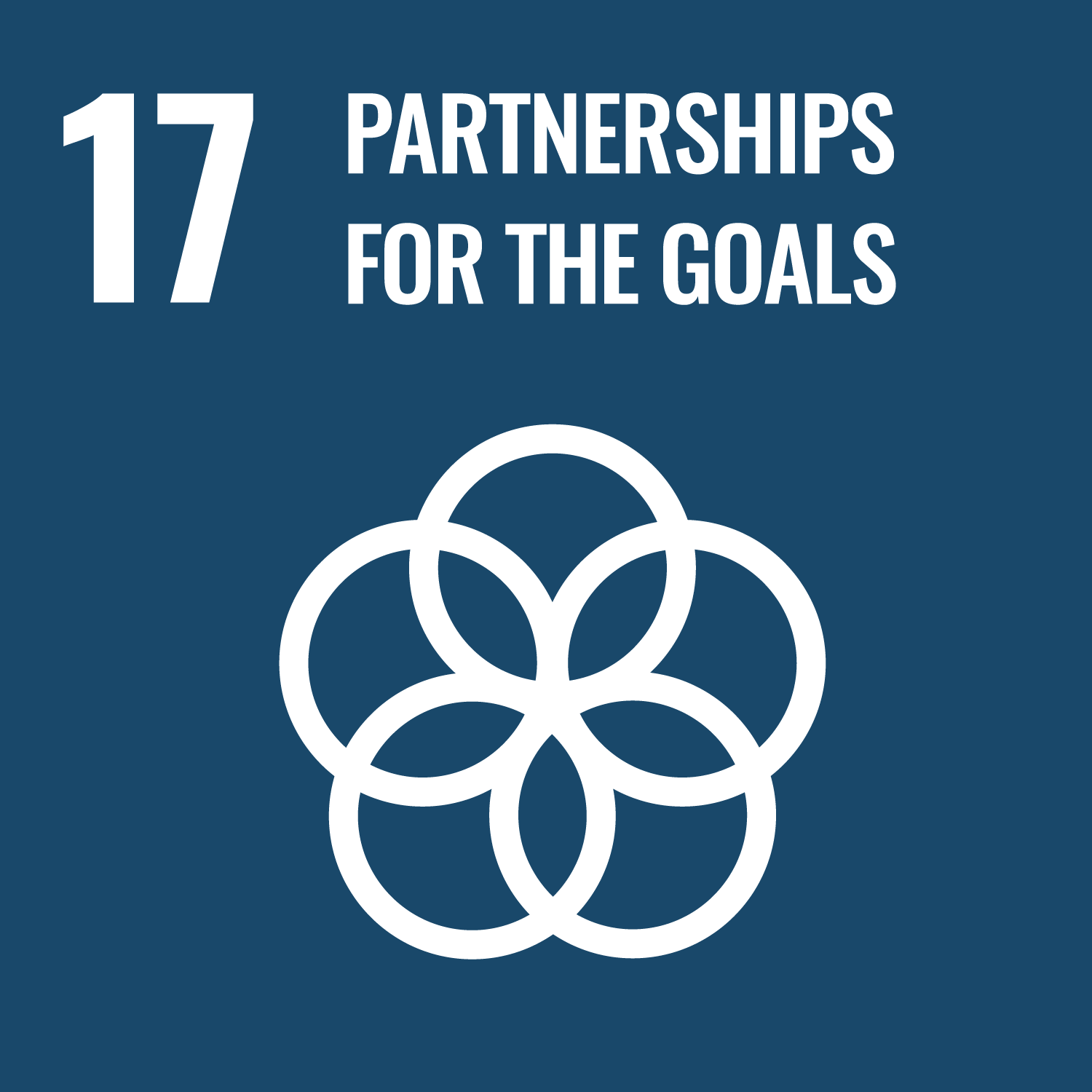
Partnerships for the Goals – Revitalize the global partnership for sustainable development.
TRU strengthens sustainable development through strategic partnerships, collaborative research and community engagement. From multi-institutional coalitions and Indigenous-led initiatives to global field schools and civic forums, TRU builds capacity for inclusive governance, ethical leadership and evidence-based decision-making. These efforts foster resilient institutions and empower communities at local, regional, and international levels.
» Learn more about SDG 17
Relationships to support the goals
Relationships with NGOs and government for SDG policy
TRU works with governments, NGOs and community partners to shape SDG policy through research, outreach and collaboration. The examples below show TRU’s direct role in identifying challenges, informing policy and supporting adaptive approaches.
Grasslands Conversation Council (GCC) of British Columbia
TRU faculty members Dr. Tom Dickinson and Dr. Wendy Gardner provide expert leadership to the GCC, which collaborates with all levels of government to share evidence-based practices for sustainable land management across British Columbia.
Learn moreCommittee on the Status of Endangered Wildlife in Canada (COSEWIC)
TRU professor Dr. Karl W. Larsen serves on the Amphibians and Reptiles subcommittee of COSEWIC, a national advisory panel to the Minister of Environment and Climate Change Canada.
Learn moreIndigenous land use and tourism policy research
Dr. Courtney Mason, professor and Canada research chair in Rural Livelihoods and Sustainable Communities at TRU, leads research on the viability of tourism and protected areas as strategies for Indigenous land development. His findings inform policy on rural and Indigenous land use development, management, and governance.
Learn moreCanada Wildfire
TRU’s Shannon Wagner, Dr. Mike Flannigan, Dinyar Minocher, and Jill Harvey play key roles in Canada Wildfire, a partnership driving innovation in fire management policy and practice.
Learn moreWildfire Management Partnership
TRU researchers, led by Dr. Mike Flannigan, are partnering with the City of Kamloops and BC Wildfire Service to develop an early warning system and enhanced training tools.
Learn moreReducing forced labour in Canadian supply chains — challenges with implementing Bill S-211
TRU’s Dr. Nancy Southin and Dr. Stuart Milligan are investigating how Canadian businesses are responding to Bill S-211, which mandates reporting on forced and child labour in supply chains.
Learn more‘Arctification’ in Tourism: Perspectives from Canada
Dr. Patrick Brouder leads a project exploring Arctic identity in Canadian tourism, engaging northern communities and students to make policy recommendations for more sustainable tourism development in northern Canada.
Learn moreDisaster resilience and community science
Dr. Bala Nikku leads a TRU initiative that co-develops tools with disaster-affected communities in B.C. and South Asia. Partnering with The Happyness Center Foundation and Qwelmínte Secwépemc, the project uses community science to empower local voices in policy advocacy and recovery planning.
Learn moreResearcher-in-Residence Initiative
TRU’s Researcher-in-Residence initiative, supported by MOUs with the City of Kamloops and United Way, integrates community-engaged research into local planning and policy. Projects like You Are Here use cultural mapping to address social and cultural challenges.
Learn moreKamloops Cultural Strategic plan
As part of the Kamloops Cultural Strategic plan, TRU researchers led community-based cultural mapping to document intangible cultural assets through story maps and interviews.
Learn moreCross sectoral dialogue about SDGs
Livable Cities, Collaborative Communities (LCCC)
The LCCC initiative is an ongoing TRU-led collaboration involving faculty, students, government, industry, and Indigenous and community organizations. In 2024, more than 120 delegates joined the conference to share knowledge on sustainability, climate action, and community resilience through presentations, workshops, and roundtables.
Learn moreTRU Gaglardi workshop on ESG and sustainability
This workshop brought together academics, policy makers and industry experts to exchange ideas on ESG issues.
Learn moreKnowledge Makers – Coyote Brings the Food Conference
The two-day conference celebrated Indigenous knowledge and global collaboration. Featuring keynote talks, cultural workshops, and discussions on climate change and food sovereignty, the event highlighted the leadership of Indigenous women and laid the groundwork for future partnerships.
Learn moreKnowledge Makers Journal – special edition
Published in partnership with the UN Food and Agriculture Organization, the special edition of TRU’s Knowledge Makers journal features research by 16 global Indigenous women. This volume focused on Indigenous women, Indigenous peoples’ food and knowledge systems and climate action.
Learn moreCollaboration for SDG best practice
Strategic Research Plan (2022-2027)
TRU’s Strategic Research plan commits to expanding national and international opportunities for researchers to address global challenges. It emphasizes communityengaged research and encourages collaboration with global partners, including Indigenous communities.
Learn moreStrategic Internationalization Plan (2025-2035)
TRU’s Strategic Internationalization Plan commits to expanding global research partnerships and exchanging knowledge worldwide. It supports collaborative, community-engaged approaches to address global challenges and contribute to the development of SDG best practices.
Learn moreInterior Universities Research Coalition (IURC)
Formed in 2017 by Thompson Rivers University, University of Northern British Columbia and UBC Okanagan, the IURC strengthens research and innovation across BC’s Interior. The coalition enhances student and faculty mobility, supports regional economic development, and connects researchers with community and industry partners.
Learn moreAll My Relations Research Centre
Based at TRU, the All My Relations Research Centre fosters Indigenous knowledge, traditions and research practices through respectful collaboration with Indigenous communities. By uniting regional, national and international Indigenous researchers, the centre supports culturally grounded wellness initiatives and builds capacity for sustainable development in Indigenous community wellness.
Learn moreIndigenous-led programing and research
TRU signed memoranda of understanding with the Tulo Centre of Indigenous Economics and the University of Canterbury to collaborate on Indigenous-led programming and research. This international partnership promotes knowledge exchange, supports Indigenous governance and strengthens capacity for sustainable development rooted in Indigenous worldviews.
Learn moreCollaboration with NGOs for SDGs
UNSDG Open Pedagogy Faculty Fellowship
TRU is a partner institution in the UNSDG Open Pedagogy Faculty Fellowship, an international program that fosters cross-institutional collaboration to advance the UN SDGs through education. Faculty teams co-create renewable assignments that empower students to drive social change, exchange knowledge globally and contribute to SDG best practices.
Learn moreNepal–Kamloops visiting researcher program
TRU hosted three Nepalese social work students through a Global Affairs Canada program. Supervised by Dr. Bala Nikku, they met with local service organizations to explore Canadian approaches to different services and how it could help influence initiatives in Nepal.
Learn moreTRU–Ukraine online webinar series
TRU partnered with the International Cultural Education Agency to deliver webinars supporting Ukrainian educators during the war. The initiative advanced global engagement in teaching and professional development.
Learn moreInternational Field Schools
TRU offers international field schools in Belize, Nepal, Italy, Peru, Thailand and Mexico. Spanning programs like Nursing, Biology and Natural Resource Science, these immersive experiences provide students with hands-on learning and global research opportunities aligned with the SDGs.
Learn moreExperience More Volunteerism
TRU’s Experience More Volunteerism program connects students with local and global NGOs for meaningful community engagement and leadership development.
Learn moreLeave for change
TRU Employees have an opportunity to volunteer in developing countries to catalyze positive education and better outcomes.
Learn moreInternational collaboration data gathering for SDGs
Resilient Community Futures Research Network (RCFRN)
TRU faculty Bala Nikku and Nisha Puthiyedth participate in RCFRN, a transdisciplinary network involving collaborators from Canada, Sri Lanka, India and Nepal. The network gathers community-centered data on resource management, community dynamics and resilience to inform policies and decision-making.
Learn moreSecwépemc Nation Research Ethics Guidelines
The Secwépemc Nation Research Ethics guidelines support ethical and culturally grounded data collection that upholds Indigenous data sovereignty, strengthens community partnerships and aligns with SDGs.
Learn moreThe Global-Hub on Indigenous Peoples’ Food Systems
TRU’s President Airini and Dr. McCormick are contributing to an innovative global think-tank that advances Indigenous food and knowledge systems by centering Indigenous-led research, governance and culturally grounded policy pathways.
Learn moreSpecial edition of the Knowledge Makers Journal “Indigenous Women, Indigenous Peoples’ Food and Knowledge Systems and Climate Action”
This special edition of the Knowledge Makers Journal, “Indigenous Women, Indigenous Peoples’ Food and Knowledge Systems and Climate Action,” showcases research by Indigenous women from seven regions, developed through the Thompson Rivers University–FAO collaboration to amplify Indigenous women’s knowledge, research capacity and policy influence through the Knowledge Makers program.
Learn moreEducation for the SDGs
Institutional Learning Outcomes (ILO)
TRU equips baccalaureate students for career success and global challenges through eight institutional learning outcomes, providing broad knowledge alongside their specialized degree. One of these outcomes is social responsibility: a TRU graduate critically evaluates and applies socially responsible, sustainable and ethical behaviors.
Learn moreSustainability-focused programs and credentials
Thompson Rivers University offers dedicated programs and courses focused on sustainability, equipping students with the knowledge and skills to address environmental, social and ethical challenges across disciplines.
Faculty of Adventure, Culinary Arts and Tourism
- Adventure Guide Certificate – hands-on field training in guiding, safety, and outdoor leadership.
- Adventure Guide Diploma – advanced instruction in adventure tourism and backcountry skills.
- Bachelor of Tourism Management – focuses on sustainable tourism development and global travel industries.
- Tourism Destination Development Post-Baccalaureate Diploma – designed for professionals advancing tourism planning and sustainability.
- Bachelor of Tourism Management, Adventure Studies Major – integrates leadership, risk management and experiential education in outdoor tourism.
Faculty of Arts
- Advanced Certificate in Liberal Arts – provides a foundation in critical thinking and communication skills.
- Bachelor of Arts, Economic and Political Studies Major – explores global political systems and economic policy analysis.
- Bachelor of Arts, Geography and Environmental Studies Major – focuses on human–environment interaction and sustainable development.
- Master of Arts in Human Rights and Social Justice – engages students in advocacy, policy and equity research.
- Indigenous Studies Certificate – examines Indigenous knowledge systems, cultures and governance.
Bob Gaglardi School of Business and Economics
- Master of Environmental Economics and Management – combines business strategy with sustainability and environmental stewardship.
- Master of Science in Environmental Economics and Management – research-based program linking economics, environment and corporate responsibility.
Faculty of Science
- Bachelor of Natural Resource Science – prepares students for managing and conserving natural resources.
- Bachelor of Science, Biology/Life Sciences Major – studies organisms and ecosystems to promote biodiversity and sustainability.
- Bachelor of Science, Ecology and Environmental Biology Major – examines ecological systems and conservation biology.
- Bachelor of Science, Environmental Chemistry Major – focuses on chemical processes affecting air, soil and water quality.
- Certificate in First Nations Applied Land Management – integrates Indigenous land use knowledge with applied environmental science.
- Master of Science, Environmental Science – interdisciplinary research on sustainability, conservation and climate adaptation.
- Regenerative Agriculture Certificate – explores soil health, climate resilience and sustainable farming systems.
- Regenerative Agriculture Diploma – applied learning in ecological farming, food systems and land restoration.
Trades and Technology
- Horticulture Certificate – foundational skills in plant science, greenhouse production and landscaping.
- Horticulture Management Diploma – advanced study in horticulture business operations and sustainable practices.
Wildfire
- Diploma in Wildfire Studies – develops expertise in fire ecology, suppression, and community resilience.
- Wildfire Science Certificate – introduces fire behaviour, management and mitigation strategies.
- Sociocultural Dynamics of Wildfire Certificate – explores the human and cultural dimensions of wildfire management.
- Wildfire Communications and Media Certificate – focuses on crisis communication, media engagement and public awareness.
- Wildfire Leadership Certificate – builds leadership capacity in emergency management and interagency coordination.
Faculty of Student Development
- Certificate in Leadership Environmental Sustainability – emphasizes environmental leadership, advocacy and community impact.
Education for SDGs in the wider community
Livable Cities, Collaborative Communities (LCCC)
LCCC is an ongoing TRU-led collaboration involving faculty, students, government, industry and Indigenous and community organizations. In 2024, over 120 delegates joined the conference to share knowledge on sustainability, climate action and community resilience through presentations, workshops and roundtables.
Learn moreTRU Gaglardi workshop on ESG and sustainability
This workshop brought together academics, policy makers and industry experts to exchange ideas on ESG issues.
Learn moreInaugural Professional Lecture series
TRU’s Inaugural Professorial Lecture series celebrates newly promoted full professors and showcases their research contributions. These public lectures foster collaboration and engagement among faculty, students and the wider community.
Learn moreRelated news and articles
Gift supports research on climate resilience
Researchers will explore the role of parks in climate resilience, reconciliation and Indigenous-led conservation thanks to a $100,000 gift.
Read more
Visiting Sri Lankan scholar collaborates on disaster resilience project
Visiting Sri Lankan scholar Dr. Fazeeha Azmi and TRU’s Dr. Bala Nikku are studying Indigenous people's disaster resilience.
Read more
Students from 23 First Nations comprise water treatment class
Indigenous students from 23 First Nations are earning their diploma as a cohort in TRU's Water and Wastewater Technology program.
Read more
TRU researchers win Michael Smith Health Research BC awards
Two Thompson Rivers University researchers have been awarded up to $20,000 each through the Michael Smith Health Research BC Reach Program.
Read more
SDG Accord
As an institutional signatory to the SDG Accord, TRU submits annual reports on our contributions toward the Sustainable Development Goals and shares evidence of our progress through events and actions on campus and in our community. These submissions are synthesized with others into a public progress report by the SDG Accord.
Gift supports research on climate resilience
Researchers will explore the role of parks in climate resilience, reconciliation and Indigenous-led conservation thanks to a $100,000 gift.
Read moreVisiting Sri Lankan scholar collaborates on disaster resilience project
Visiting Sri Lankan scholar Dr. Fazeeha Azmi and TRU’s Dr. Bala Nikku are studying Indigenous people's disaster resilience.
Read moreStudents from 23 First Nations comprise water treatment class
Indigenous students from 23 First Nations are earning their diploma as a cohort in TRU's Water and Wastewater Technology program.
Read moreTRU researchers win Michael Smith Health Research BC awards
Two Thompson Rivers University researchers have been awarded up to $20,000 each through the Michael Smith Health Research BC Reach Program.
Read moreSDG Accord
As an institutional signatory to the SDG Accord, TRU submits annual reports on our contributions toward the Sustainable Development Goals and shares evidence of our progress through events and actions on campus and in our community. These submissions are synthesized with others into a public progress report by the SDG Accord.
